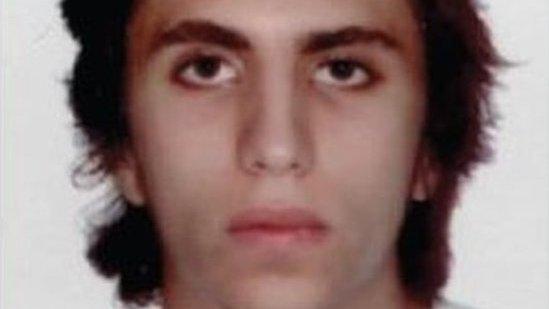London Bridge attack inquest: 'No urgent security action' advised in lead-up
- Published
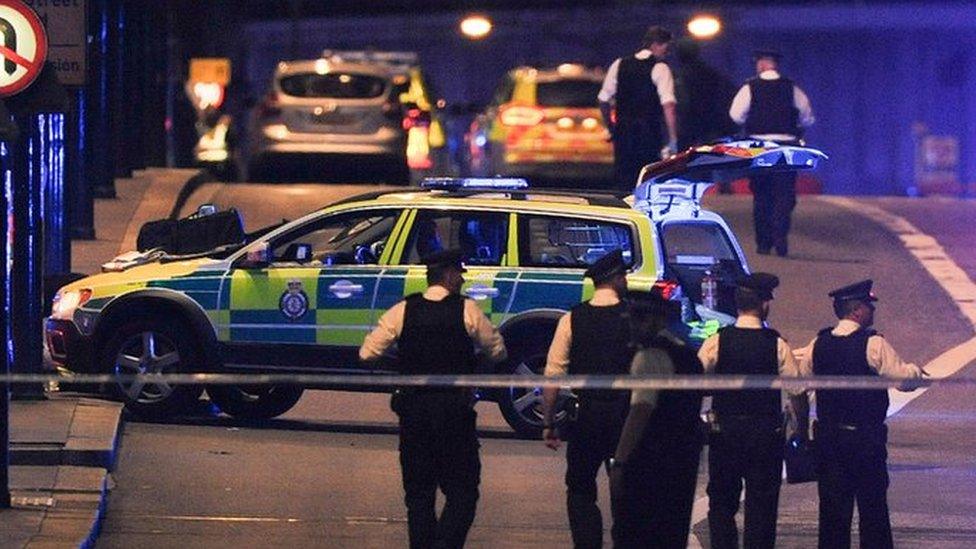
Police told planners no urgent security action was needed at London Bridge less than a month before deadly attacks in the area, an inquest has heard.
The City of London Corporation security director said the advice came at a meeting with a counter-terror adviser in May 2017, after the bridge was put on a list of vulnerable locations.
Four weeks later, three attackers killed eight people and hurt 48 others.
The inquest into the victims' deaths is being held at the Old Bailey.
Richard Woolford told the court London Bridge had not been one of five "highly vulnerable" sites flagged up as security priorities by counter-terrorism police.
But he arranged to meet City of London Police's Matthew Hone after the area was flagged as a risk following a review in April 2017.
He told the inquest the counter-terror adviser "categorically" told him "no immediate action" was required.
'Most vulnerable location'
Recounting what happened at the meeting, Mr Woolford said: "I asked at that point is there any action required by me or the corporation by this and he said no."
Mr Woolford said he "never saw" any recommendations for "long-term permanent solutions" PC Hone had said he would give to him.
Sgt Hone told the previous day's inquest hearing he had warned colleagues London Bridge was the "most vulnerable location [to a] marauding vehicle attack", along with one other unnamed area.
Shortly after the Westminster Bridge attack in March 2017, Sgt Hone - who was at that time a PC - emailed senior colleagues to say "something needs to change".
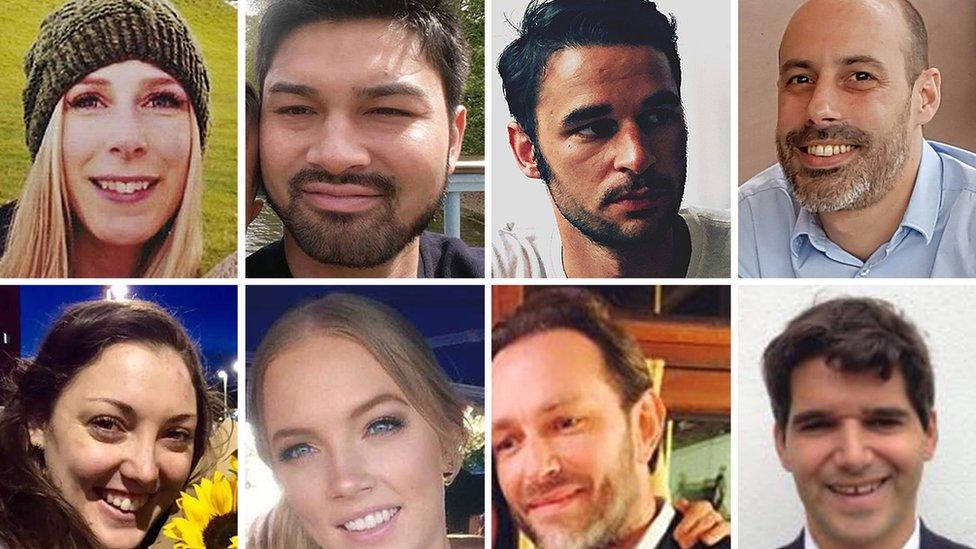
The victims of the London Bridge attack clockwise from top left - Chrissy Archibald, James McMullan, Alexandre Pigeard, Sébastien Bélanger, Ignacio Echeverría, Xavier Thomas, Sara Zelenak, Kirsty Boden
But the court heard the popular tourist spot had not met the criteria for barriers to be installed because it did not fall within the Home Office's "rigid" definition of a crowded place.
Jane Gyford, who at the time was the City of London Police commander of operations and security, said there was also "no intelligence" to suggest the area would be targeted by attackers.
Asked if temporary protective barriers might have been an option, she said: "There is no case in this country where National Barrier Asset has been used without intelligence or to do with an event."
Gareth Patterson QC, representing some of the victims' families, said London Bridge had been "crying out for protection" before the attack.
'No change in priorities'
On Tuesday the inquest heard an independent report had identified the area as a "viable and attractive" target for an attack using a vehicle as a weapon.
Counsel to the coroner, Jonathan Hough QC, told the inquest the study by Cerastes, which had been commissioned by City of London Police, found "the location and layout of the bridge lends itself to a ram attack with no physical barriers in place to prevent a vehicle mounting the pavement".
The Metropolitan Police's lead for royalty and specialist protection security said she had not heard of the report until after the attack but that it would not have changed how police prioritised which areas to protect.
Deputy Assistant Commissioner Lucy D'Orsi added: "I don't think the report itself would cause me to start putting protective security measures in because it could be written for a multitude of places in London."
Khuram Butt, Rachid Redouane and Youssef Zaghba were shot dead within minutes of driving a van into pedestrians on London Bridge and stabbing people in and around Borough Market.
Those killed in the attack were Xavier Thomas, 45, Chrissy Archibald, 30, Sara Zelenak, 21, Kirsty Boden, 28, Ignacio Echeverría, 39, Sébastien Bélanger, 36, James McMullan, 32, and Alexandre Pigeard, 26.
The inquests continue.
- Published17 June 2019
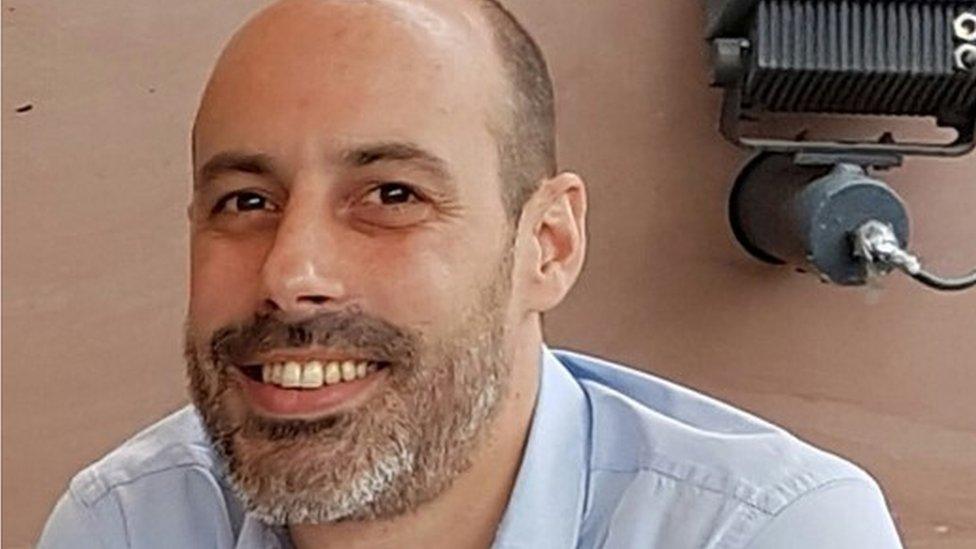
- Published14 June 2019
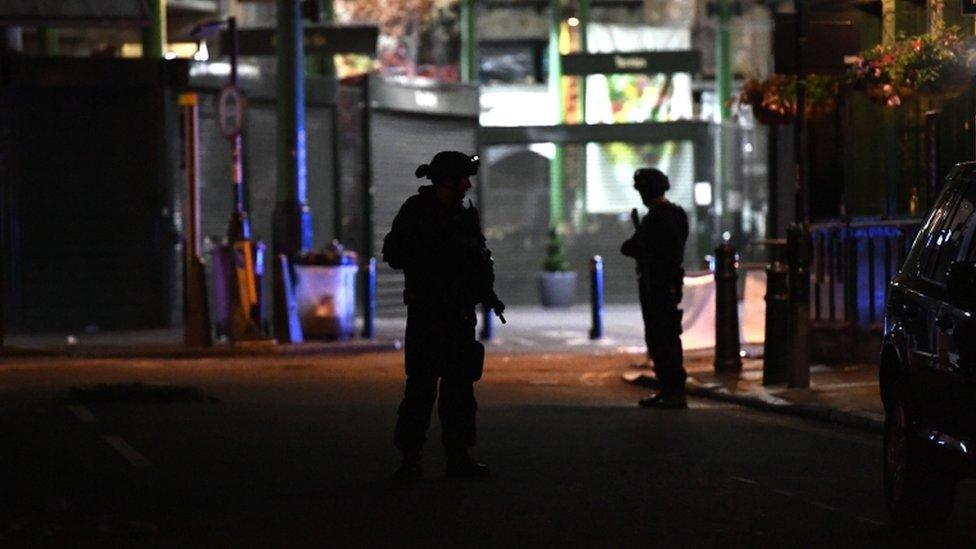
- Published13 June 2019
